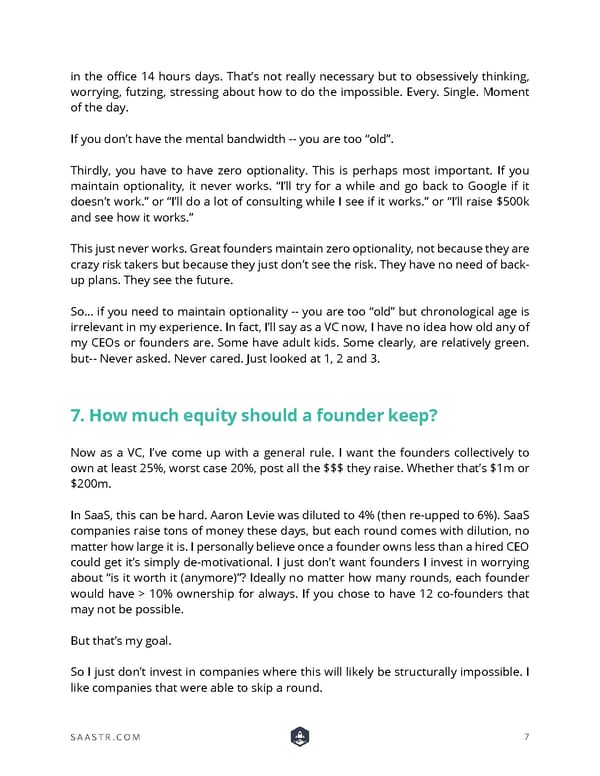in the office 14 hours days. That’s not really necessary but to obsessively thinking, worrying, futzing, stressing about how to do the impossible. Every. Single. Moment of the day. If you don’t have the mental bandwidth -- you are too “old”. Thirdly, you have to have zero optionality. This is perhaps most important. If you maintain optionality, it never works. “I’ll try for a while and go back to Google if it doesn’t work.” or “I’ll do a lot of consulting while I see if it works.” or “I’ll raise $500k and see how it works.” This just never works. Great founders maintain zero optionality, not because they are crazy risk takers but because they just don’t see the risk. They have no need of back- up plans. They see the future. So... if you need to maintain optionality -- you are too “old” but chronological age is irrelevant in my experience. In fact, I’ll say as a VC now, I have no idea how old any of my CEOs or founders are. Some have adult kids. Some clearly, are relatively green. but-- Never asked. Never cared. Just looked at 1, 2 and 3. 7. How much equity should a founder keep? Now as a VC, I’ve come up with a general rule. I want the founders collectively to own at least 25%, worst case 20%, post all the $$$ they raise. Whether that’s $1m or $200m. In SaaS, this can be hard. Aaron Levie was diluted to 4% (then re-upped to 6%). SaaS companies raise tons of money these days, but each round comes with dilution, no matter how large it is. I personally believe once a founder owns less than a hired CEO could get it’s simply de-motivational. I just don’t want founders I invest in worrying about “is it worth it (anymore)”? Ideally no matter how many rounds, each founder would have > 10% ownership for always. If you chose to have 12 co-founders that may not be possible. But that’s my goal. So I just don’t invest in companies where this will likely be structurally impossible. I like companies that were able to skip a round. SAASTR.COM 7
 The Ultimate Guide For Scaling Sales & Raising Capital Page 10 Page 12
The Ultimate Guide For Scaling Sales & Raising Capital Page 10 Page 12